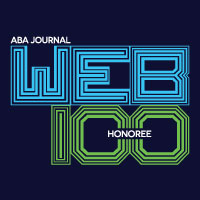In what is probably an exception to the general direction, the West Virginia State Bar Lawyer Disciplinary Board has issued an opinion outlawing ghostwriting in documents that are to be filed in court, unless the name of the helping lawyer is disclosed. (Note: in an earlier version of this post, I did not make clear that all that was forbidden was the lack of disclosure of the help.)
This is the report in the West Virginia Record, a legal publication.
Note that the State Access to Justice Commission took a strong stand against the ruling: According to the Record article: “The opinion ‘will damage the ability of many low- and middle-income West Virginians to obtain access to justice in West Virginia,’wrote Chairman Robert S. Baker in a June 9 letter to the LDB. He said it ‘places unusually strong limitations on the practice of ghostwriting.'”
ATJ Commission Chair Baker added, according to the Record:
“At a time when the American Bar Association and many state bars have voiced support for ghostwriting, the West Virginia Lawyer Disciplinary Board now seeks effectively to do away with the practice. This will injure both pro se litigants and our courts that serve substantial numbers of pro se litigants.”

